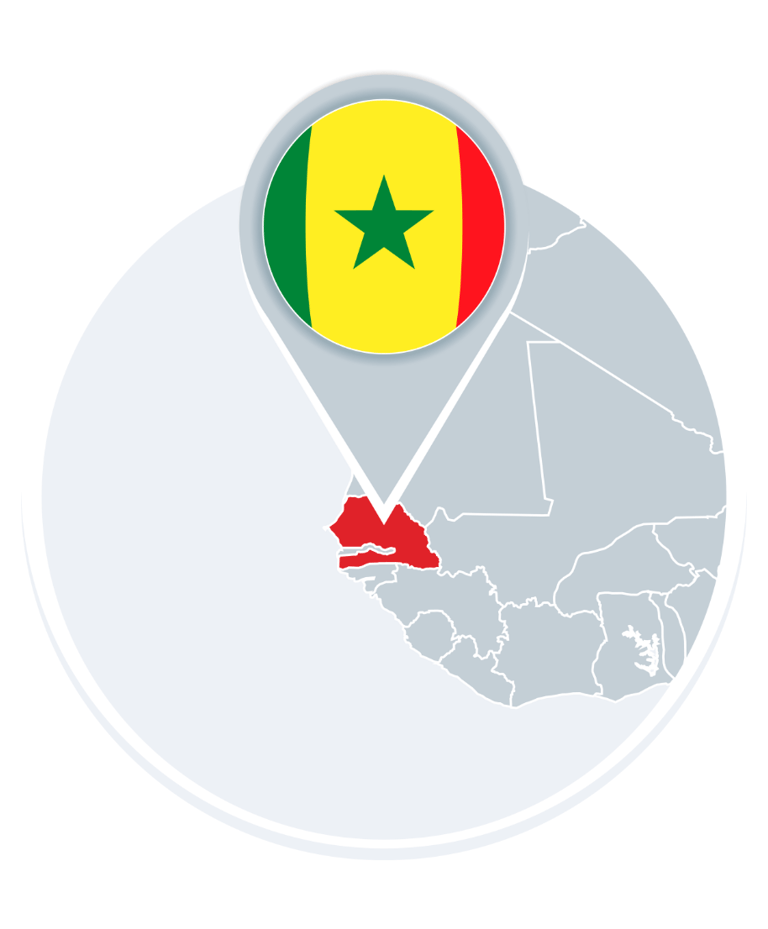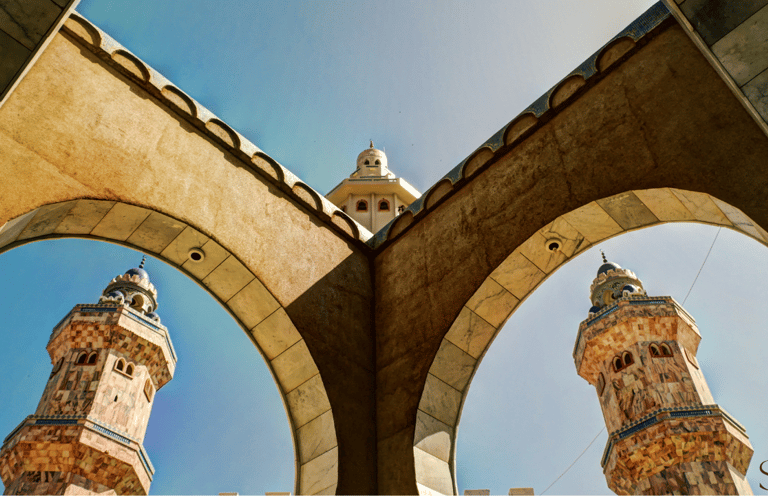
Senegal
Deep dive into history, nature and culture of Senegal. The West African country filled with the history of centuries past and the expansive flora and fauna is sure to leave you enchanted.
Senegal is uniquely positioned as a melting pot of traditional and contemporary cultures. From the infamous slaving trading post in Goreé Island, the towering African Renaissance Monument - a symbol of Africa's resilience and hope for the future to the Loumpoul desert, the windy mangroves in Saloum delta - a Mecca of biodiversity and a peek into the lives of a Fulani tribe of Senegal, the country boasts of indomitable culture, explosive culinary profiles and, most of all, breathes Teranaga - the spirit of warmth and hospitality.


WHERE TERANGA LIVES

HISTORY
Senegal, located on the west coast of Africa, has an elegant history that dates back thousands of years. The region was once part of the Ghana, Mali, and Songhai Empires.
In the 15th century, Portuguese explorers arrived, followed by the French in the 17th century. Senegal became a French colony and gained independence on the 20th of August,1960 under the leadership of Léopold Sédar Senghor, who became the first president.


CULTURE
Senegal is a cultural melting pot, with a diverse population that includes various ethnic groups such as the Wolof, Fula, and Serer.
The country is renowned for its music, particularly the genre of Mbalax, popularized by artists like Youssou N'Dour. Traditional dance, storytelling, and craftsmanship are integral parts of Senegalese culture.
Over the years, Senegal has evolved into a home of arts and music, housing popular contemporary festivals like the Saint Louis Jazz Festival, the Dakar Biennial Art Festival and more.



9 DAY JOURNEY THROUGH SENEGAL AND GAMBIA
Are you ready for a captivating journey through the amazing countries of Senegal & Gambia? Sail the Saloum delta, explore Fulani villages and more.


8 DAY CULTURE & ADVENTURE IN SENEGAL
Join us on this exquisite journey to Senegal. Learn about the colonial history in Dakar and Gorée Island, brave a daring walk with lions.
Language: French is the official language, but Wolof is widely spoken. English is increasingly spoken in urban areas.
Health: Ensure you have up-to-date vaccinations, including yellow fever, and take anti-malarial medication. We advise that you drink bottled water and use insect repellent. Major cities have good healthcare facilities, but travel insurance covering medical evacuation is recommended.
Safety: Senegal is generally safe for tourists, but it is advisable to stay aware of your surroundings, particularly in crowded areas.
Transportation: Taxis and car rentals are readily available in cities. Public transportation, including buses and minibuses, is an affordable way to travel.
Currency: The currency of Senegal is the West African CFA franc (XOF). ATMs are widely available in cities, and credit cards are accepted in major hotels and restaurants, though it is advisable to carry cash for smaller establishments and markets. You can convert any currency to CFA franc here.
Etiquette: Greetings in Senegal often involve handshakes. Modest dress is appreciated, especially in rural areas and religious sites. When taking photographs, always ask for permission before taking photos of people, particularly in rural areas. It is customary to eat with the right hand and to wash hands before and after meals.
Cuisine: Senegalese cuisine is a delightful blend of flavors influenced by African, French, and Portuguese culinary traditions. Key dishes include Thiéboudienne, the national dish consisting of fish, rice, and vegetables; Yassa, chicken or fish marinated in lemon, onions, and mustard; and Mafé, a rich peanut stew with meat and vegetables. Bissap, a refreshing drink made from hibiscus flowers, and Café Touba, a spicy coffee flavored with Guinea pepper and cloves, are also popular.
Passport and Visa: Travelers to Senegal must have a passport that is valid for at least 6 months. Citizens of certain countries except ECOWAS citizens may require a visa to enter Senegal. US citizens do not require a visa to enter Senegal. You can check if you require a visa to enter Senegal here.
IMPORTANT THINGS TO KNOW

DISCOVER MORE
Need more information on specific packages and services?
Share your contact information and a dedicated Guest Experience Director will get in touch within 24 hours.


